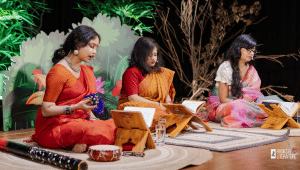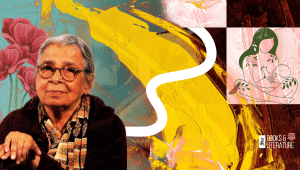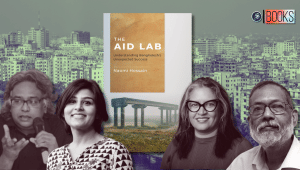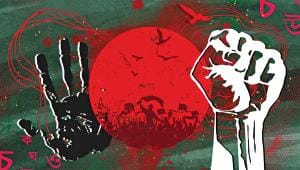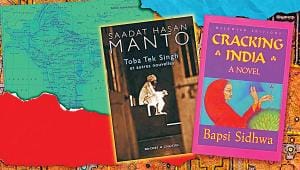Bon Bibi reimagined: A feminist tale from the Sundarbans
This was a syncretic tale of the Sundarbans that was reinterpreted into being at Goethe-Institut Bangladesh on Saturday, June 28, by Folklore Expedition Bangladesh in a puthi path titled “Bon Bibir Jahuranama”
3 July 2025, 08:48 AM
On motherhood and Mahasweta Devi’s ‘Breast-Giver’
I couldn’t help but think of the cultural significance of the word “ma” in our own society today; it is lead-heavy with meaning and so frequently invoked—from commonplace addresses of tender respect for women to motherly depictions of the landscape of Bengal in artworks, songs, and films
11 May 2025, 15:55 PM
‘The Aid Lab: Understanding Bangladesh’s Unexpected Success’: Naomi Hossain’s book finally meets Bangladesh
On January 18, UPL hosted the publication ceremony for Naomi Hossain's 'Aid Lab' (University Press Limited, 2024) at The Bookworm in Shahabuddin Park
22 January 2025, 12:00 PM
The boundless possibilities of books
Books are often staple travel companions. But as the reader leafs through its pages, they are blanketed by the warmth of its faint-yet-familiar scent, and submerged into a linguistic hinterland hiding infinite possibilities. As pages and letters metamorphose into a world unfettered by human limitations, books become much more than mere companions we literally travel with. Rather, they are transfigured into vehicles through which we embark on a more figurative journey—one of the intellect and the imagination.
19 September 2024, 18:00 PM
The English-Bangla conundrum continues
When my literature professor heard I had been delving into Bangla literature and cultural media in pursuit of a self-undertaken project to finally learn Bangla, she suggested I see the 1970 film Jibon Thekey Neya.
22 March 2024, 18:00 PM
‘Bare life’ and Partition
“Can one break a country...Will the earth bleed?” asks eight-year-old Lenny in Bapsi Sidhwa’s Cracking India (1988)–a tale about Partition. “No one’s going to break India. It’s not made of glass!”
9 August 2023, 18:00 PM
